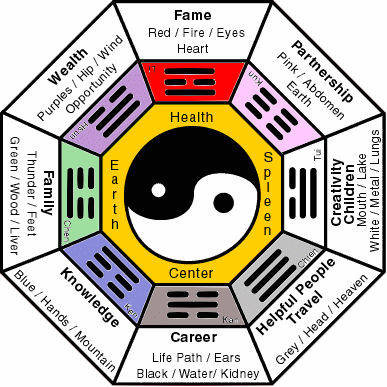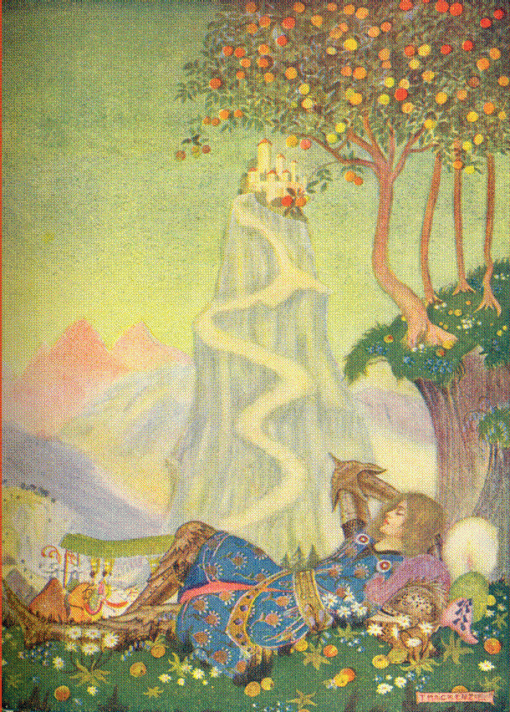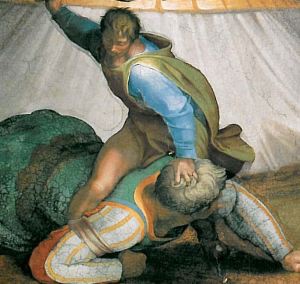 In order to accomplish our life goals we need self-confidence. What is self-confidence, where does it come from, and how do we cultivate it?
In order to accomplish our life goals we need self-confidence. What is self-confidence, where does it come from, and how do we cultivate it?
Mencius, my favorite Chinese Sage, believed that confidence comes from “ch’i,” the universal source of energy. This power that moves through us has many names — eros, elan vital, libido, kundalini.
The brilliant philosopher, Paul Tillich, called self-confidence “the courage to be.” Possessing this courage means being your authentic self in the face of any danger.
Tillich believed that if we lack such confidence it means we are distanced from our essential nature. Mencius believed this, too. His name for our essential nature was heart. This definition of heart as our essential nature has been found around the world throughout history. In one example, St. Augustine said, “The heart is where I am whatever I am.” Mencius said, “pity the man who has lost his heart and does not go out and recover it.” He, too, believed our lack of strength came from being distanced from what we actually are.
Mencius said that when we are connected to our hearts, we have “free-flowing ch’i.” This means that when we are our true selves we have the ultimate connection to the endless and powerful supply of energy from the universe. It is when we are in touch with this source that we can do anything we set our minds to.
Having this power and confidence is another aspect of our entelechy, that which we are meant to be. We grow this power and self-confidence through being properly parented. When we get what we need from the world, our brain is pumped with chemicals like dopamine, which fills us with energy and confidence. When we are disappointed in life, our dopamine levels drop and we feel like the air has been taken out of our balloon. Getting sufficient positive reflection growing up is the real Popeye’s spinach. When we do not get enough positive support growing up, we chronically have low supplies of dopamine. This can lead us to feel enervated and insecure. We learn that being who we truly are is no good, and so we hide those essential aspects of ourselves. We come to believe that we are not the glorious beings that we are. We live in shame, which is the opposite of having “free-flowing ch’i,” or self-confidence. Having problems with energy and confidence are sure signs that we have a lost heart.
With self-confidence, we believe in our value and capacities. We can face any obstacle. We can handle the risks of rejection, failure, and mistake. When we live in shame, we believe we are less than, and incapable.
How do we recover our hearts, develop the courage to be, reconnect with our essential being, and find access to our ch’i?
In the fairy tale, Maid Lena, nothing grows in the center of a farm. This is a symbol for a disconnection from heart and ch’i. When we are disconnected from this source of power, there is something in our center where nothing grows. The youngest son, Esben, lives a life mooning about. He is put down by his brothers. He lives in shame, and has no motivation or confidence. After his brothers fail at the task of figuring out why nothing will grow in the center of the farm, Esben determines that he will find out. When his father tries to dissuade him from going, he says, “I’m going, I’m going, I’m going!” When he gets there, he feels fear, but he keeps his feet on the ground, breathes, and determines to face whatever happens. A horrific storm begins. He sees three demons flying straight at him. He looks the demons right in the eye. As they get closer they turn into three swans. Then, just before they reach him, they transform into three beautiful princesses. One of the princesses promises to marry him if he spends the following year completing three impossible tasks. When he returns to the farm he looks completely different. He is filled with power and beauty. After fulfilling the princess’s wish, they marry and he becomes king.
What does this fairy tale have to tell us about recovering our hearts and finding our self-confidence? First, despite the lack of confidence shown in him by others and his own lack of energy, he determines to find the source of his problems. No matter how frightened he is about facing his demons, he doesn’t run away. When he does, he discovers that what he had been avoiding actually becomes the source of his inspiration. By going to the empty place and staring down his fears, he becomes transformed. This doesn’t mean that his task is complete. In fact, it means that his work now begins. But he now has enough confidence and power to complete the impossible tasks he is given, and in the end he gets all that he desires.
To find our hearts and cultivate our self-confidence, we need to follow Esben’s path. We need to begin by devoting ourselves to a life-long process of growth. Just like Esben, we must say, “I’m going!” We need to go to the empty place within ourselves no matter how scary that seems. We need to learn how to go within, explore and come to understand ourselves. When we do, what we usually find is that we need to heal the wounds of our childhoods that have resulted in the formation of shame.
We must complete the impossible tasks. This means mastering our present. We need to commit ourselves to self-improvement, learning continuously, immersing ourselves in art, spending time in nature, caring for our bodies. We must practice the discipline to recognize and end our negative thinking.
Central to finding self-confidence is acting impeccably. As Mencius said, every time we do the right thing, we come into greater contact with our ch’i. We must take responsibility for our destructive behavior patterns and surrender to getting help with our addictions and compulsions. We discover that when we do the right thing, we feel good about ourselves and this is the greatest fuel for the growth of our self-confidence.
In order to grow our confidence, we need to have reciprocal, authentic relationships. Like Esben, simply meeting the princess does not win her. He must work to gain her love. We must learn how to communicate and connect with others in true intimacy. This must include both giving and receiving positive validation. Start telling people you know and love that they are extraordinary and you’ll find your own confidence growing.
Another step in growing our confidence is envisioning a better future. By using the examples of the courageous who have gone before us, we call on them for inspiration and help. We must cultivate an image of ourselves as being that which we desire to be. We need to read stories of heroes like Esben, because when we do we realize that we are potentially kings. To fulfill our nature we simply have to follow the path of the heroes who have gone before.
This plan for self-cultivation which provides us access to the “free-flowing ch’i” which is the core of our self-confidence, is known in Asian philosophy as “the Way,” or the Dao. When we live in accordance with the way every day, we find our hearts. By living according to our core truths, we will grow in self-confidence until we can overcome any obstacle, face any fear, achieve any goal, and find true fulfillment and happiness. As Esben learned, that which we fear turns out to be the source of our power. When we follow the way, transformation is guaranteed.
![Reblog this post [with Zemanta]](https://i0.wp.com/img.zemanta.com/reblog_e.png)

 On the website, personallifemedia.com,
On the website, personallifemedia.com,  In my work as an ADD coach, I often hear my clients bemoan the fact that what comes easily to others is hard for them. The harsh reality is that they speak the truth. As no one of us can measure the suffering of another or truly compare it to our own, each person deserves the full measure of compassionate understanding. So it is important to my clients that I recognize that this is a painful frustration.
In my work as an ADD coach, I often hear my clients bemoan the fact that what comes easily to others is hard for them. The harsh reality is that they speak the truth. As no one of us can measure the suffering of another or truly compare it to our own, each person deserves the full measure of compassionate understanding. So it is important to my clients that I recognize that this is a painful frustration. Winifred Gallagher, author of the book,
Winifred Gallagher, author of the book, 